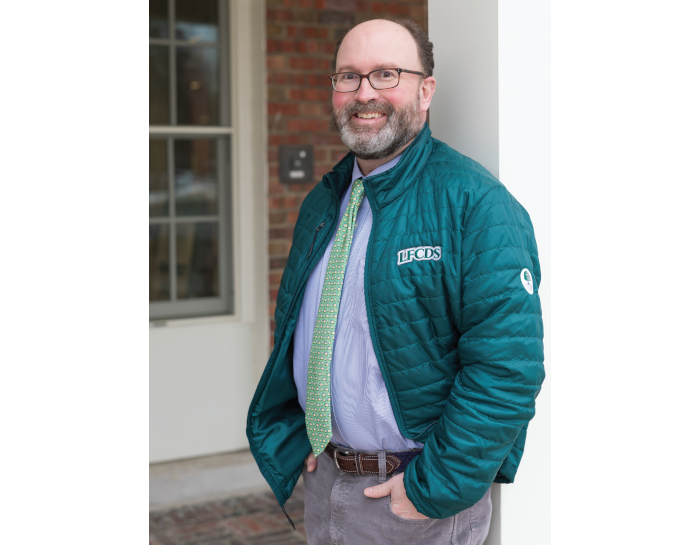Individualized Instruction
By George Lincoln
By George Lincoln


THE APPROACH here is unique,” says Ben Haight, a social studies teacher and member of the Upper School faculty at Lake Forest Country Day School (LFCDS). Haight knows this as well as anyone—the school runs in his family. His parents both taught at LFCDS, his wife is on faculty, and both of his children attend.
“We will know and love each child as a student and as a person,” Haight says. “That spirit has lived at the heart of the LFCDS identity since the school’s founding.”
The school’s history dates back to the 1800s, with the establishment of the Bell School, located at what is now a house on Westminster Avenue in Lake Forest. In the mid-20th century, the Lake Forest Day School was founded and eventually merged with the Bell School to form Lake Forest Country Day.
“At first, the idea was to provide a smaller, rigorous, traditional education,” Haight says. “That evolved into a progressive approach designed to offer a broader and more diverse set of learning experiences.”
Being a 130-year-old institution steeped in tradition, but one that has always embraced forward-thinking philosophies and pedagogies, allows the school to achieve equilibrium between a student’s intellectual and social-emotional development.
A key feature in maintaining this nuanced student-centric approach is the size of the school. LFCDS enrolls 400 students from age 2 through grade 8. The average pre-pandemic classroom had 15 students but the student to faculty ratio across the school hovers at 7 to 1. This year’s classrooms have around 12 students per section. That level of closeness facilitates a depth to learning completely individualized to each student.
“When students come to school,” Haight says, “they will be challenged appropriately to where they are, whether it is steering them to more difficult material or changing course to offer support.”
Haight says that when he was a student at LFCDS, students primarily came from Lake Forest, but over the years that has changed. There are 37 zip codes represented at LFCDS and the community has become increasingly reflective of greater Chicagoland. LFCDS families live in the city, in the western suburbs, north of the Wisconsin border, and all points between. Pulling families from such a wide area allows the 33-acre campus to serve as a diverse demographic intersection. The school’s intentional efforts to cultivate a sense of inclusion and belonging facilitates an environment where students and families are learning from, and with, each other.
LFCDS has seen significant interest from prospective families, in part because the school has been open for on-campus learning from the start of the academic year. After seamlessly transitioning to remote learning last spring, LFCDS turned its efforts toward returning students and faculty to campus for instruction in the fall. This implemented plan has allowed for synchronous and continuous learning, even for students who have needed to remain home. Community-wide partnership on mitigation efforts has allowed LFCDS to maintain a healthy and safe campus that has been free of virus transmission.
Yet, it is much more than merely being on-campus that has families drawn to LFCDS. It’s a familiar feeling for Haight.
“You walk the halls, and you can feel the connections between teachers and students,” Haight says.
It is the LFCDS spirit that Haight and his family have known and loved for generations.
Lake Forest Country Day School is located at 145 S. Green Bay Road in Lake Forest, 847-234-2350, lfcds.org.
Sign Up for the JWC Media Email